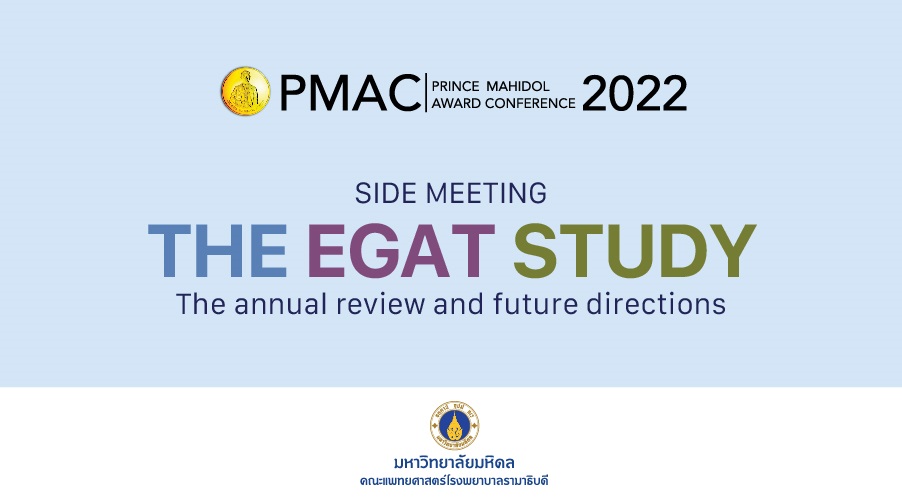Side Meetings
SMA104
The EGAT study: The annual review and future directions
23
Jan
- Faculty of Medicine Ramathibodi Hospital, Mahidol University, Thailand

During the past 30–40 years, there has been a tremendous increase in the prevalence of cardiovascular disease (CVD), especially in developing countries. The change from an agricultural to an industrial society, and the introduction of new technology, make people less likely to engage in physical activity and more likely to adopt a sedentary lifestyle. Modern medicine has markedly reduced the mortality from infectious disease and has improved human longevity, consequently leading to more deaths from chronic diseases, particularly cancer and CVD. Thailand, a medium-sized middle-income country, is one of those nations that is encountering this epidemiological transition and is anticipated to experience much greater increases in CVD compared with Western countries over the next 20 years.
Observational studies in Western populations suggest that the well-established risk factors for CVD (obesity, diabetes mellitus, elevated blood pressure, dyslipidemia and cigarette smoking) account for most of the attributable risk for CVD. But the manifestations of CVD and prevalence of its risk factors are often different among Western and Asian populations. For instance, stroke is much more common among many Asian populations compared with the USA or European Union. Most CVD events are potentially preventable through modification of risk factors. To prioritize the preventive measures for maximum benefit, and influence change, a clear understanding of the attribution of risk factors in the local environment is needed. Consequently, following the model of the Framingham study, the first cohort study of chronic disease in Thailand was set up by a group of cardiologists at Ramathibodi Hospital, Bangkok, in 1985. Their basic aim was to examine the effects of cardiovascular risk factors, as identified by Framingham and other studies, on health in the Thai population, specifically to see if the same risk factors worked in the same way as elsewhere. Due to issues with contacting participants in a general population setting within Thailand, it was decided to site this study within an occupational workforce. Initial funding was provided by Mahidol University, the Thai Heart Association and the Electricity Generating Authority of Thailand (EGAT) corporation. Later, the National Research Council, Thailand Research Fund and Praman Chansue Foundation became major funders.
1. To summarize the annual outputs of the EGAT study
2. To update the up-to-date dataset available for public
3. To present our future works and projects

